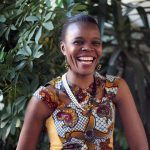Earlier this month, a group of eleven intrepid travellers boarded a British Airways plane to Athens. We were on our way to support a church, partnering alongside the Greek government, assisting with the needs of the refugees.
I’d been on mission trips before but this was slightly different. As a missionary trip, it was less of an overtly evangelistic mission and more of a social justice one. We’d be looking after children at an asylum centre, while their parents were being processed; helping out in a distribution warehouse and cooking and serving food at one of the refugee camps on the outskirts of Athens.
Our first day was spent at the asylum centre. We were led to a small room, filled with an assortment of toys, a television and shortly, 13 children and five volunteers! We looked after the children for hours, painting nails, colouring and drawing. The girls loved beading bracelets and we had a box of Uno, which we discovered was universal, a baby doll, some puzzles and a soft ball.
Looking at the tiny pair of hands trying to fit two puzzle pieces together, it was hard to truly imagine what they had already experienced in their short little lives. Sometimes their behavior gave us a glimpse into the horrors; sometimes it was the mother’s eyes that told the story. The blank stare and the empty expression made my stomach lurch and my heart, ache. They looked shattered, utterly exhausted and spent.
Working alongside these families, I felt a love and compassion that was not mine.
We met a mother – a teacher – from Afghanistan, who lost her husband to the Taliban leaving her a widow of four children. She put her eldest son on a bus to Switzerland at the age of 14 and set him on his way. Then took her daughter and two younger boys – one, a toddler – on a journey through Afghanistan, to Iran, to Turkey and into Greece. Her dream was to join her eldest, in Zurich. Five countries, three children, not one flight, only walking, buses and boats, thus far.
I wanted to tell her I admired her so much, that her strength was incredible, that I had no idea what sacrifices she had made, but her children were a testimony to the brave, courageous, wise woman she was; that they reflected so much of the values she and her husband must have instilled in them and she could be so very proud of the job she was doing.
I’ve never wanted to be fluent in Farsi as much as that moment.
Other days were spent in the distribution warehouse packing food parcels and offloading deliveries. The centre receives donations of clothes and food from all around the world and our job was to sort through the food and build food parcels for distribution amongst families, and also sort through the donated clothing and separate it into categories of gender, ages and then clothing type.
It was long, heavy work, but we worked so well as a team; the enthusiasm everyone had for each job kept us going throughout the long hours of the day.
Rose is a beautiful charismatic woman with dancing eyes and easy smile. Originally from Kenya, her husband passed away not long after she arrived in Athens with their three children, leaving her in a foreign country, with no idea of the language, culture or life-style, suddenly the main bread-winner and solo parent of three children.
Despite her personal challenges, Rose always maintains charity starts at home and twice a month, cooks up a storm in her tiny kitchen to feed the refugees living in the camps around Athens. She has a stove with only two working burners and one big pot she rotates three times, to make enough food for 600 hungry refugees.
We were able to join Rose one Saturday, helping prepare and serve food to a refugee camp called Oinofyta, on the outskirts of Athens.
The children were offered popcorn, a chapathi (a delicious deep-fried Kenyan donut) a scoop of the lentil and rice dish made that afternoon, and two baby biscuits. This was washed down with a sweet milky tea, or a shot of extra strong coffee loaded with sugar.
In addition to food, Rose also provided a team of entertainers in the form of two young men from Kenya who brought along speakers and some traditional Afghani music.
As soon as the music started, the Afghani men burst out into spontaneous traditional dancing! Spurred on by a roomful of clapping , cheering onlookers they took turns showing off their dancing skills.
Their dancing mystical and evocative, an echo of life long, long ago, of distant lands and cultures far removed from mine. I could see by the utter joy on the faces of the men and women that this music reminded them of a different time, of a different life and how just for a moment, they could forget their now and dance in the memory of their people and a life left behind.
It was an utter honour to serve these people this week. For many, the refugee crisis is an emotive one. It raises either compassion or anger. It’s a volatile topic, one that sets hearts and pulses races for two very different reasons.
Irrespective of whether we should or shouldn’t allow this to happen, the reality is, it is happening. For me, the question raised this trip, was what can I do?
I’ve been inspired to not just get on a plane to help meet a need, but to look around me, to look locally – in Kingston – in London, and ask, what is the need?
After all, as one great Kenyan woman once said, charity starts at home.




